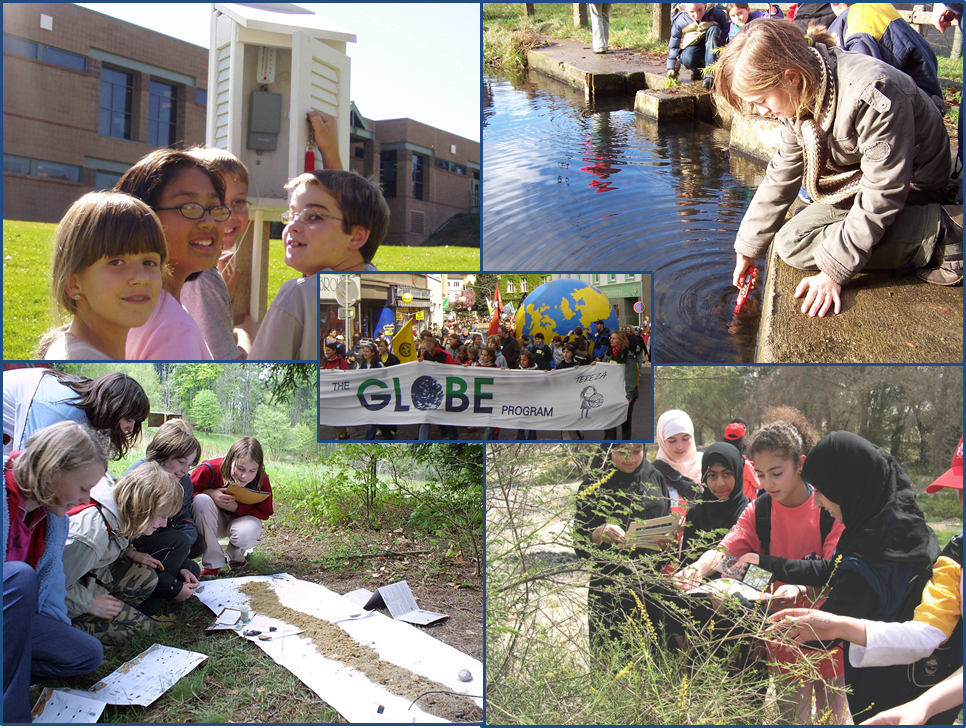Join us at the 2026 January ESIP Meeting! Register.
Member Highlight: GLOBE

The GLOBE Program
GLOBE (Global Learning and Observations to Benefit the Environment) is an international science and education program that connects a network of students, teachers and scientists from around the world to better understand, sustain and improve Earth’s environment at local, regional and global scales. GLOBE engages students in hands-on learning through scientific measurement protocols and supporting learning activities. GLOBE teachers guide their students through investigations of their local environment from asking questions and making observations, data collection, entry and analysis, and sharing of research with peers.

The GLOBE Program offers teachers and students much more than scientific procedures: staff educators and scientists have developed climate education materials (such as the From Weather to Climate Learning Activity, which guides students to an understanding of the difference between weather and climate); worked with NASA and NOAA scientists and educators to develop Earth system science materials (such as an Earth System Science Poster), with science teams to develop large-scale projects (such as the Earth System Science Projects).
Since the Program launched on Earth Day 1995, GLOBE students from over 100 countries have contributed more than 100 million environmental data in the areas of Atmosphere, Hydrology, Land Cover/Biology, Phenology, and Soil. These data are used by both students and scientists in scientific research. The GLOBE Program is sponsored by NASA and NSF and supported by NOAA and the U.S. Department of State. The GLOBE Implementation Office is currently managed by UCAR, in Boulder, Colorado.
Interesting Project: The GLOBE Program offers students the opportunity to connect to satellite missions (such as CloudSat, CALIPSO, GPM, and SMAP). In many instances student in situ data are used in calibration/validation analysis of instruments onboard these satellites. GLOBE has incorporated satellites and remote sensing into its offerings since the beginning; initially, students mapped their local area in comparison with Landsat images. GLOBE students have also provided data for calibration of the MODIS instrument onboard the TERRA satellite.
Reasons for participating in ESIP: The GLOBE Program’s focus is on students gaining a better understanding of Earth through data collection and analysis. Besides locally-collected student data, teachers and students can greatly benefit from access to global datasets on a large scale. ESIP member institutions can not only provide a wide range of datasets, but can also provide an array of visualization and analysis tools to pique the curiosity of young minds. It is through the exploration of Earth through these data that leaders of tomorrow can envision themselves as stewards of their environment.
ESIP Type: Type 3
Joined: 2005
Voting Rep: Gary Randolph
Link: www.globe.gov



